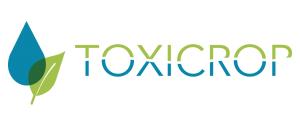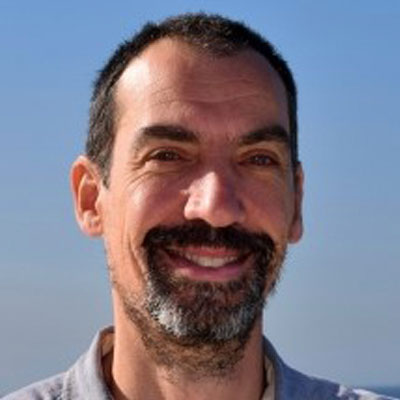
Alexandre Campos
CIIMAR
Project Coordinator / SSC Chair
BIO
Alexandre Campos earned his degree in Biology (1996) from the University of Aveiro and his Master’s Degree in Plant Breeding (1999) from the University of Évora. He completed his PhD in Biological Sciences in 2005 at the Instituto de Tecnologia Química e Biológica (ITQB) from University Nova de Lisboa, where he developed research work in the fields of plant pathology and proteomics. He is currently Assistant Researcher at CIIMAR (Blue Biotechnology and Ecotoxicology Lab) and his main research interests concerns the toxicology and risk assessment of harmful algal blooms in aquatic and agricultural environments.
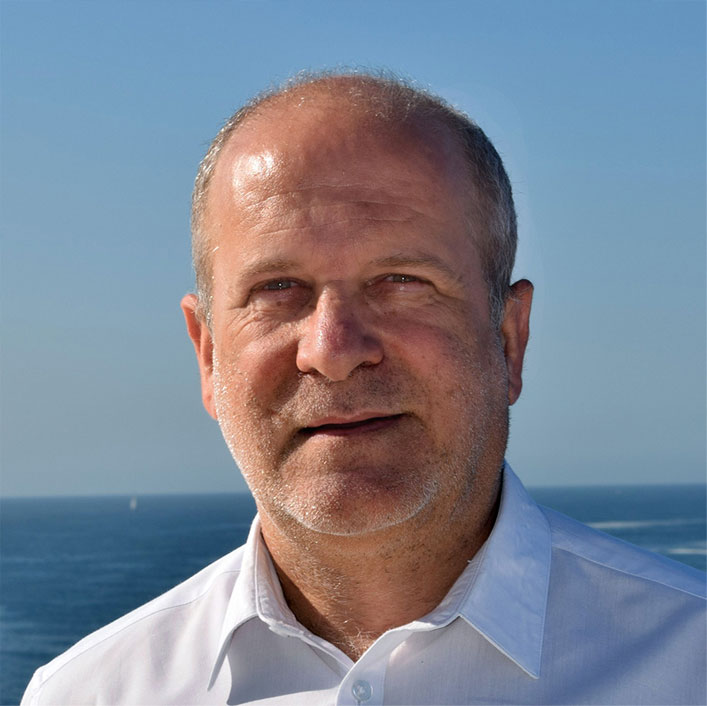
Vitor Vasconcelos
CIIMAR
Coordination Committee
BIO
PhD in Biology at FCUP, Porto. Full Professor – Faculty of Sciences of Porto University and director of CIIMAR – Interdisciplinary Center of Marine and Environmental Research. Director of the Group of Blue Biotechnology and Ecotoxicology (LEGE lab). Supervised 65 MSC and 25 PhD students. Main research focus on cyanobacteria secondary metabolites and their uses: toxins and molecules with biotechnological applications. Responsible for the LEGE culture collection comprising more than 400 strains of cyanobacteria. Published 280 papers in Toxicology and Biotechnology. Participated in more than 40 projects being at the moment coordinator of three projects (one national and two H2020).
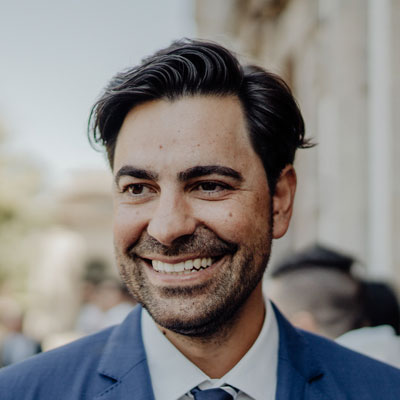
Samuel Amaral
CIIMAR
Project Manager / Coordination Committee
BIO
Samuel Amaral is a marine biologist and experienced international marine consultant with more than 10 years managing and leading numerous private and governmental projects. He is currently a project manager of two H2020 projects at CIIMAR – Interdisciplinary Centre of Marine and Environmental Research.
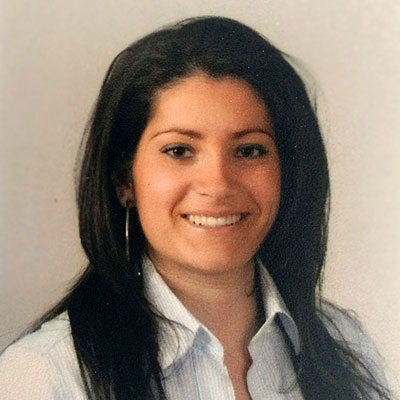
Marisa Freitas
CIIMAR
Research Team / STAC
BIO
Assistant Professor at Department of Environmental Health, School of Health, Polytechnic Institute of Porto (ESS-P.Porto) and Researcher at Blue Biotechnology and Ecotoxicology Group (BBE), Interdisciplinary Centre of Marine and Environmental Research (CIIMAR). Marisa Freitas is graduated in Environmental Health (ESS-P.Porto, 2007) and holds a MSc in Toxicology and Environmental Contamination (ICBAS-University of Porto, 2009), and a PhD in Environmental Sciences and Technology (FCUP-University of Porto, 2014). Her main research interests are focused in the toxicology of harmful algal blooms, especially in the assessment of its direct or indirect impacts on aquatic and agricultural systems and consequently on public health (considering the via food chain). Currently in CIIMAR, she is researcher in the National project MOREBIVALVES (02/SAICT/2017 – nº 031762) and in the European project TOXICROP (RISE Project ID: 823860).
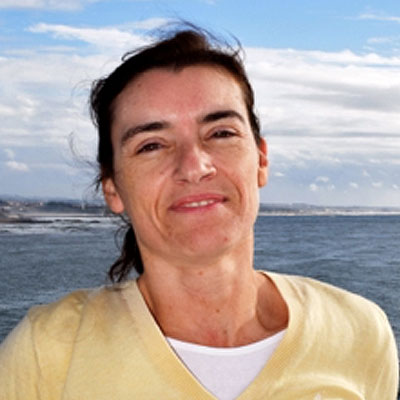
Marisa Almeida
CIIMAR
Research Team / STAC
BIO
Marisa Almeida (Female, born in 1974, ) is a senior researcher at CIIMAR since 2005. With a PhD in Chemistry (obtained in 2003) and expertise on environmental chemistry, her main research area is bio and phytoremediation, being actively engage in studies aiming its use as a biotechnology tool for remediation of aquatic environments contaminated with different pollutants. She has participated in several national and international projects and published over 100 articles. She also regularly gives talks to the general public and school students in the frame of the CIIMAR outreach programs and projects, regarding both ocean and water literacy.
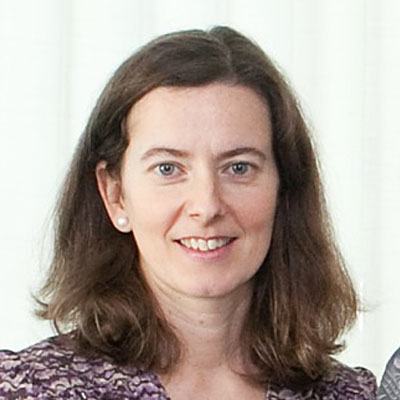
Angeles Jos
USE
Research Team / STAC Chair
BIO
Angeles Jos is Full Professor in Toxicology of in the Faculty of Pharmacy at the University of Sevilla. She is senior scientist in the research group CTS-358-Toxicology in the Department of Food Science, Toxicology and Legal Medicine. Her research interests are in the field of Food Safety, particularly in the hazard characterization of different toxicants present in food. Among them, cyanotoxins (mainly microcystins and cylindrospermopsin) have a pivotal role in her research line studying their toxic effects using both in vitro and in vivo methods, their toxic mechanisms (genotoxicity, oxidative stress, etc.), and developing analytical methods for their determination in water and food samples.
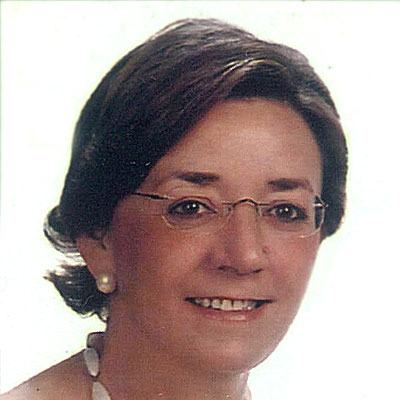
Ana Mª Cameán
USE
Research Team
BIO
Ana Mª Cameán, PhD in Pharmacy from the University of Sevilla (US) (1985), and Full Professor of Toxicology at the US since 2005. She has developed her teaching and research career in the Toxicology Area of the Department of Food Science, Toxicology and Legal Medicine of US. Responsible since its creation of the research group “Toxicology” (CTS-358). Her research interests are in the area of Food Safety, focusing mainly on the study of cyanotoxins (Microcystins, Cylindrospermopsin) present in water and food, evaluating their transference through the development and validation of methods for their determination, and their toxic effects with in vitro and in vivo models, effects of cooking, histopathological alterations, bioaccessibility, etc.
Since 2014 she is President of the Spanish Association of Toxicology (AETOX), and she has been part of the Scientific Committee of the Agency for Food Safety and Nutrition (AESAN).
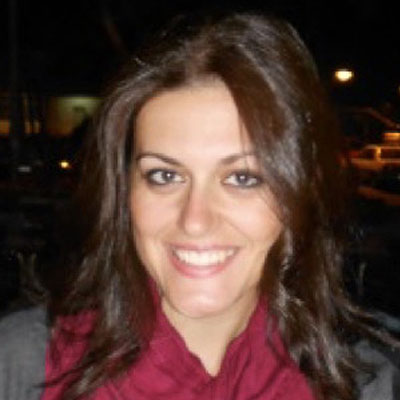
Remedios Guzman Guillen
USE
Research Team
BIO
Dr. Remedios Guzmán Guillén is Associate Professor in Toxicology in the University of Seville, working into the CTS-358 “Toxicology” research team led by Dr. Cameán. She has been working since 2009 in the field of cyanotoxins, mainly microcystins (MCs) and Cylindrospermopsin (CYN), focusing on food safety. She has studied the mechanisms of toxic action and bioaccumulation of these cyanotoxins, and worked on the development and validation of different quantitative and robust methods for the determination of MCs and CYN in different matrices (waters, cyanobacterial cultures, aquatic organisms and vegetables) by (UP)LC-MS/MS (-Orbitrap), and has investigated the effects of CYN on vegetables (carrots) exposed to these cyanotoxins.
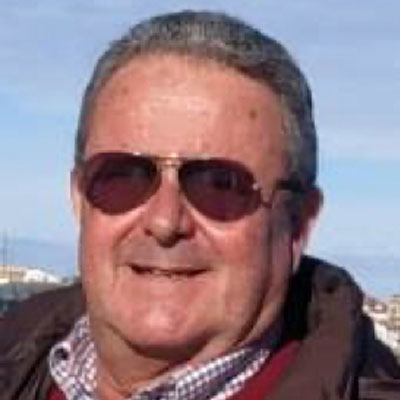
Antonio Gil-Serrano
USE
Research Team
BIO
A.M. Gil-Serrano is Full Professor of Organic Chemistry, Dep. of Organic Chemistry in the Faculty of Chemistry at the University of Seville. He is the Main Researcher of the Research Group “Natural Products: Polysaccharides and Oligosaccharides” (BIO135). His research interests are in the field of the structural determination of biological molecules, especially oligosaccharides and polysaccharides of bacterial origin and other organic compounds of various origins. Currently he is the Director of the Mass Spectrometry Service of the University of Seville.
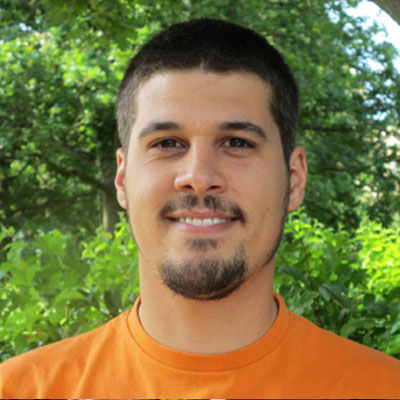
Pedro Carvalho
AU
Research Team / STAC
BIO
Dr. Carvalho is a researcher in environmental chemistry and water treatment technology. He has more than 10 years of experience working with organic micropollutants in the environment and for the past years has been studying their treatment by constructed wetlands. His interests spread from pollutant degradation pathways to water reuse.
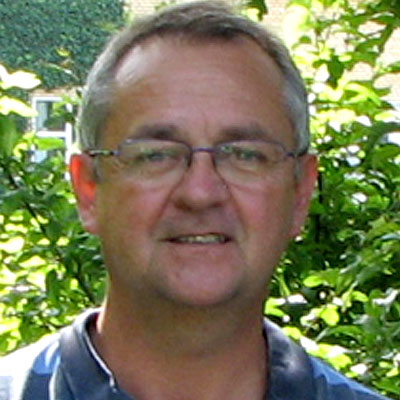
Carlos Arias
AU
Research Team / SSC
BIO
Dr. Arias is a senior researcher with 20 years of experience working with water pollution control by eco-technologies, including constructed wetlands. His expertise in wetlands design and phosphorous removal are recognized worldwide. In the latest years, his interest includes as well resources recovery and knowledge transfer to lower-income countries.
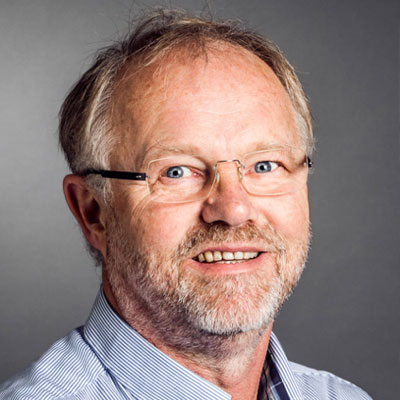
Hans Brix
AU
Research Team
BIO
Dr. Brix is professor specialised in freshwater ecology, wetland ecology and plant ecophysiology. Focus is on the ecophysiology of invasive plants in wetlands and aquatic ecosystems, and biogeochemical cycling.
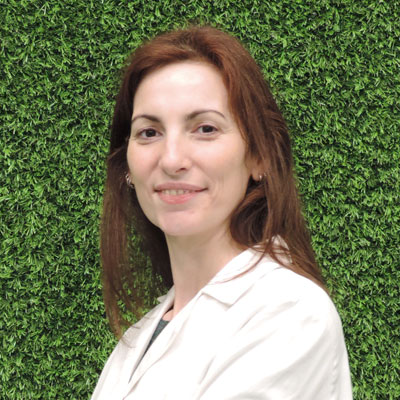
Eva Cagide
CIFGA
Research Team / SSC
BIO
Eva obtained her BSc in Biology in 2003 from the University of Santiago de Compostela (USC, Spain), and completed her PhD on the scope of phycotoxins in 2009. From 2008 she is employed as a researcher in Laboratorio CIFGA where she has been highly involved in the applications of natural toxins, microorganisms culture activities, and R&D management.
She has more than 15 articles published in international scientific journals, has co-authored 3 book chapters about marine and freshwater toxins and has participated in different international congresses. Eva has been involved in 18 national and international research projects, 12 of them during her work at CIFGA, managing 10 of them. She also has represented CIFGA on several meetings and congresses as expositor.
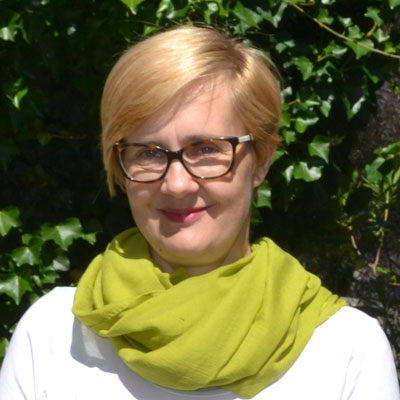
Alenka Zalaznik
LIMNOS
Research Team
BIO
Alenka Mubi Zalaznik is a project manager, skilled in networking, entrepreneurship, public policy development and environment. Since 2014 she has been part of the LIMNOS team, responsible for coordination, project management and sales, particularly of nature-based solutions. In Toxicrop she manages national data provision, coordinates experts on cyanotoxins and develops a regional project for sustainable management of water retention bodies of Eastern Slovenia.
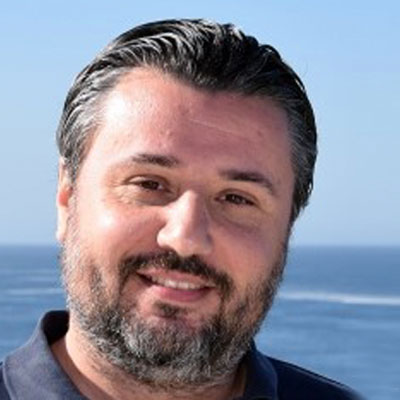
José Carlos Martins
NOSTOC
Research Team / SSC
BIO
José Carlos Martins graduated in Biology from the Faculty of Sciences of the University of Porto (FCUP) in 2001. He obtained a M.Sc. in Hidrobiology from FCUP in 2005 and a Ph.D. in Biology from FCUP in 2011. He has more than 15 years of expertise in the field of aquatic ecotoxicology of natural toxins and environmental health.
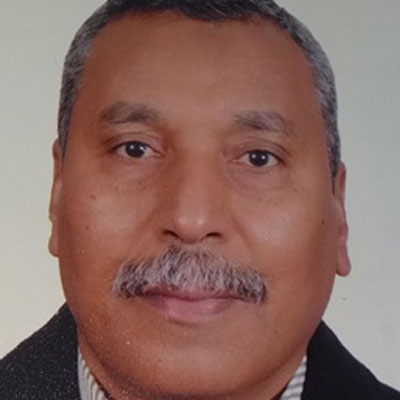
Brahim Oudra
UCA
Research Team / SSC
BIO
Professor Brahim OUDRA is a PhD in Ecotoxicology of toxic Cyanobacteria blooms (CyanoHAB), Full-Professor and researcher at the Univ. Cadi Ayyad, Semalia Faculty of Sciences in Marrakech, department of Biology since 2005. He is currently, Vice-Head of department of Biology in Faculty of Science Semlalia- Marrakech, and Vice-Director of the laboratory of Water, Biodiversity and Climate Change. His teaching areas involve Algological biodiversity and Micro-algae and Cyanobacteria Eco-physiology, Botanical studies, Ecotoxicology, and Plants biochemistry. Prof. Brahim areas of research and expertise are: Ecotoxicological diagnosis and health risks associated with cyanotoxins and their behavior in the aquatic food chain; Contamination of irrigation water with cyanobacteria toxins: allelopathic and phytotoxicity interactions: Cyanotoxins -plants- bacterial soil complex; Investigator on innovative green biological process applied for toxic cyanobacteria growth control and cyanotoxins removal; Screening of bioactives substances against cyanobacteria from Moroccan plants and seaweeds (mainly Essential oils compounds); 5) Screening of Bacterial consortium for cyanotoxins ( Microcytins) biodegradation. Over the years, he has supervised more than 12 PhD dissertations and more than 40 master degrees. He is also author of 85 scientific publications and counts with more than 150 communications in scientific meetings and congresses.
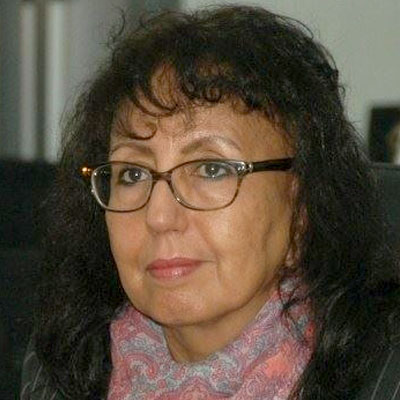
Laila Mandhi
UCA
Research Team
BIO
Mrs. Laila MANDI is currently Professor of Water & Environmental Sciences at Cadi Ayyad University, Marrakech (Morocco). In 2008, she was nominated as a Director of the National Centre for Studies and Research on Water and Energy at Cadi Ayyad University. She has coordinated several funded research projects at different levels: i) National ii) bilateral cooperation with different countries (Germany, Belgium, Spain, France, Japan, Jordan, Tunisia, Egypt, Algeria, etc.) and iii) European Projects (PURATREAT, MELIA, SOWAEUMED, WATERBIOTECH, TREASURE 2, NORIA, FRAME…). Within the research projects, she supervised more than 30 PhD thesis. Has published more than 150 peer-reviewed scientific papers and book chapters; spoken also at national, international conferences and workshops as lecturer. Since 2014, she becomes a member of the college of qualified personalities at the France Water Academy. In 2015, she has been awarded the Islamic Development Bank (IDB) prize for Women’s Contribution to Development in recognition of her outstanding research work and contribution to the Water Resources Management. In 2017, she becomes member of the network of Mediterranean Experts on Climate and Environmental Change (MedECC) and member of the multidisciplinary stakeholders group (MSG) to address knowledge gaps in the field of adaptation to climate change for the North African sub region in the context of the Lima Adaptation Knowledge Initiative (LAKI) implemented by UN Environment.
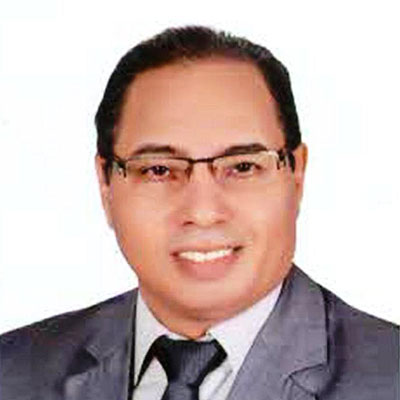
Zakaria Mohamed
SOU
Research Team / SSC
BIO
Chairman of Botany and Microbiology Department, Faculty of Science, Sohag University, Egypt. He earned his B.Sci and M.Sci in AssiutUniversity (Egypt) in 1990 and 1994, and Ph.D. in Wright State University (USA) in 1998. He worked as assistant and associate professor in Assiut University, Botany Department during 1998-2003 and 2003-2008. He held a position as a visiting professor for teaching and research in King Khalid University (Saudi Arabia) during 2003-2011. Currently, he is a professor of Microbiology at the Department of Botany and Microbiology, Faculty of Science, Sohag University, Egypt (Since 2008). Prof. Mohamed serves as a reviewer for some Elsevier, Springer and Wiley & sons Journals, and judges many research projects dealing with water pollution and treatment technologies, which have been submitted to King Abdulaziz city for Science and Technology (Saudi Arabia), and to Egyptian Universities as well. He is a Reviewer for Egyptian Universities Promotion Committee in the field of Botany and Microbiology. He has received some awards and nominations e.g. UNESCO award for young scientists in Environmental Science, 1999 and Science Excellence Award, Sohag University, 2014. Prof. Mohamed has many publications in international impacted journals and supervises a number of MSc and PhD theses on harmful algae and cyanobacteria and their toxins in drinking water, seafood and vegetables on one hand, and the removal of algal and cyanotoxins from drinking water on the other hand.

Cesar Ranilla Falcon
UNSA
Research Team / SSC
BIO
Biólogo, Magister en Ciencias con mención en Biotecnología Vegetal, candidato a Doctorado de Biología Ambiental, Profesor de Botánica Criptogámica, Histología Vegetal y Ficología del Departamento Académico de Biología de la Facultad de Ciencias Biológicas de la Universidad Nacional de San Agustín, realiza actividades de investigación en cultivo e identificación de algas
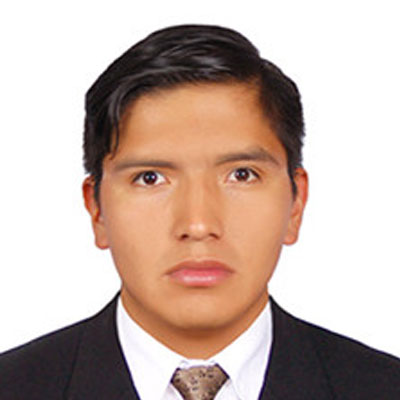
Victor Uro
Científica Peruana
Research Team
BIO
Victor Hugo Rodríguez Uro, of Peruvian nationality. Biologist by profession, from the National University of San Agustín de Arequipa – Peru, I have worked in the area of cyanobacteria and cyanotoxins, conducting research internships in both Argentina (National University of La Plata) and Portugal (CIIMAR). I am currently a member of the TOXICROP Project by the National University of San Agustín. At the same time, I also work as a consultant on environmental issues.
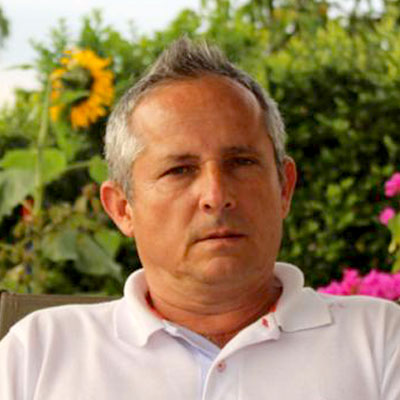
Diego Cuervo
UTP
Research Team / SSC
BIO
Dr. Diego Paredes Cuervo is a Sanitary Engineer from Universidad del Valle (Colombia), Master in Water and Environmental Resources Management from Unesco IHE (The Netherlands) and Doctor in Engineering from Halle Wittenberg Martin Luther University (Germany). Dr. Paredes is an Associated Professor at the Environmental Science Faculty of Universidad Tecnológica de Pereira. Currently, He is the head of the water and sanitation research group of the Environmental Science Faculty, He has authored or coauthored 25 peer review articles, published five books, one book chapter and more than forty contributions to national or international conferences.

Aimee Pombrol
CEAC
Research Team
BIO
Aimee Valle Pombrol, Associate Researcher at the Center for Environmental Studies of Cienfuegos. Specialist in taxonomy of phytoplankton and freshwater cyanobacteria.
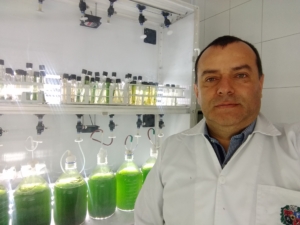
Luis Montenegro
UNAL
Research Team
BIO
LUIS CARLOS MONTENEGRO RUIZ. Biólogo, Dr.Sc.
Profesor Asociado Dedicación Exclusiva
Laboratorio de Cultivo de Algas
Departamento de Biología
Universidad Nacional de Colombia
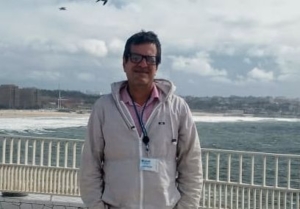
Angel González
CEAC
Research Team
BIO
Angel González trabalha em taxonomia, ecologia e ecotoxicologia de algas em ecossistemas aquáticos.
